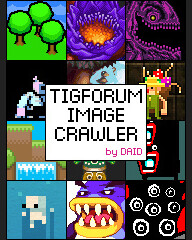Kickstart This: Dreamfall Chapters
By: Derek Yu
On: February 18th, 2013
The Longest Journey creator Ragnar Tørnquist is kickstarting Dreamfall Chapters, the third game in the popular adventure series and the conclusion to the story of Zoë Castillo. Six years after the release of Dreamfall, Tørnquist is bringing back that game’s core team to develop this third chapter independently through his new studio, Red Thread Games. The Kickstarter has already reached its goal of $850,000, but fans may want to earn the project’s rewards or support its stretch goals.
Since hitting its $900,000 stretch goal, Dreamfall Chapters will be released on Mac and Linux, as well as PC. The currently-slated release date is in November, 2014.
-
Flender
-
http://www.derekyu.com Derek Yu
-
[email protected]
-
Anonymous
-
Bram Stolk
-
http://twitter.com/phubans Paul Hubans
-
Johnny Stuntman
-
que
-
Anonymous
-
Sunny


